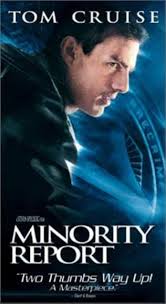The Relevance of Minority Report in Modern Society

Introduction
The concept of the ‘Minority Report,’ originating from Philip K. Dick’s 1956 short story and later popularised by Spielberg’s 2002 film, has resonance in contemporary discussions about ethics, technology, and law enforcement practices. Its themes question the morality of preemptive justice and the implications of predictive technology, making it a critical point of reference in debates around privacy, surveillance, and individual rights.
Current Relevance and Developments
In the years since its debut, the idea of predicting criminal activity before it occurs has moved from speculative fiction into reality with advancements in artificial intelligence and data analytics. Various police departments around the globe have begun experimenting with predictive policing technologies that use algorithms to forecast potential criminal behavior, often based on historical crime data.
These technologies aim to allocate resources more efficiently, but they have raised urgent questions about the potential for bias. Critics argue that such systems can disproportionately target minority communities, reinforcing existing societal inequalities—an issue at the heart of the Minority Report narrative.
For instance, companies like PredPol claim to use data-driven approaches to prevent crime, yet studies have shown that areas with high policing activity can result in skewed data that perpetuates a cycle of over-policing. The ‘Minority Report’ warns us of a future where technology, rather than enhancing justice, could lead to unjust outcomes based purely on algorithmic predictions.
Ethical Implications and Future Trends
The ethical implications of predictive policing are vast and complex. Legal scholars, ethicists, and activists call for regulations and transparency in the algorithms used by law enforcement, stressing the need for accountability. As we stand at the intersection of technology and ethics, the lessons from the Minority Report narrative remind us that while the potential of predictive technology is vast, its application must come with caution and a commitment to justice.
Conclusion
The impact of the Minority Report extends beyond entertainment; it serves as a cautionary tale about the perils of predictive justice and the ethical responsibilities of those who wield technological advancements. As predictive technology continues to evolve, public discourse surrounding its use will be crucial. Engaging with these themes is not just an academic exercise but an imperative for safeguarding civil rights in a world increasingly governed by data-driven decision-making.









